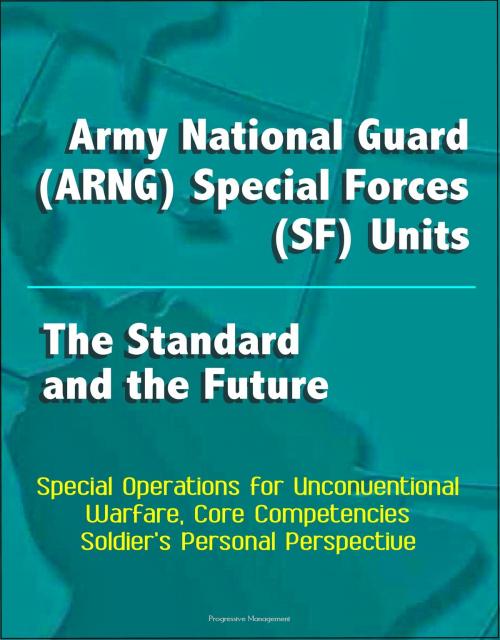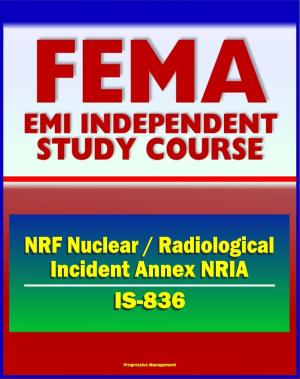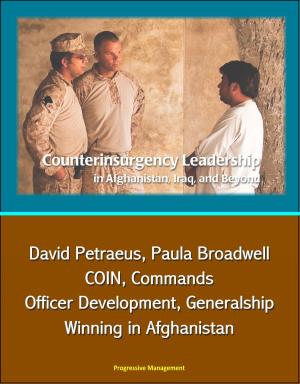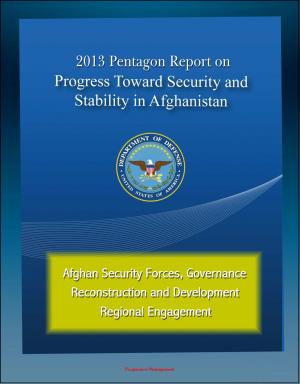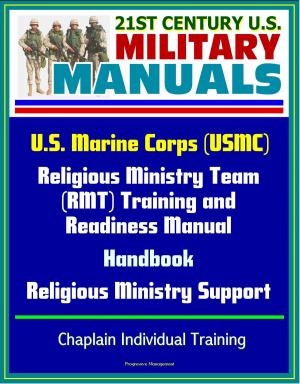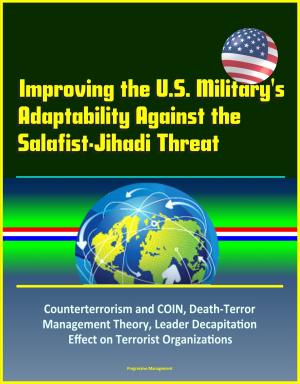Army National Guard (ARNG) Special Forces (SF) Units: The Standard and the Future - Special Operations for Unconventional Warfare, Core Competencies, Soldier's Personal Perspective
Nonfiction, History, Military| Author: | Progressive Management | ISBN: | 9781311627544 |
| Publisher: | Progressive Management | Publication: | January 24, 2015 |
| Imprint: | Smashwords Edition | Language: | English |
| Author: | Progressive Management |
| ISBN: | 9781311627544 |
| Publisher: | Progressive Management |
| Publication: | January 24, 2015 |
| Imprint: | Smashwords Edition |
| Language: | English |
Currently, ARNG SF Soldiers and Units are essential components of the United States National Security Strategy (NSS). Yet these part-time SF Soldiers are not trained to the same standard as their Active SF counterparts. Army National Guard SF units are not sufficiently trained or resourced. Their capabilities and readiness were further degraded by their recent high operational tempo. This SRP addresses shortfalls in ARNG SF training and standards and provides recommendations to require all SF Soldiers to meet the same Army standards in order to support the NSS.
The National Security Strategy (NSS) specifies that the nation will make use of every resource in our arsenal to win the Global War on Terrorism (GWOT). In this war the enemy is not a single political entity, but one that is politically and religiously motivated. This enemy takes great pleasure in violence against the innocent. But this enemy has seen what the strategic asset Special Operations Forces (SOF) can accomplish in Afghanistan and Iraq. With its global reach, SOF will continue to provide a vital means for winning the war against terrorists. Indeed, such strategists as TX Hammes assert that we are entering a fourth generation of warfare in which SOF will play a critical role. Hammes observes that insurgents and terrorists are not impressed with conventional power. They will use techniques and tactics that circumvent the training and experience of our conventional forces. This is why SOF plays a significant role in the National Security Strategy. According to Hammes, it is essential that we recruit, train, educate, and retain the kinds of personnel we need to fight in the 21st century.
Currently, Army National Guard (ARNG) SOF Soldiers and units are essential components of U.S. SOF capabilities to support the NSS. Yet these part-time SOF Soldiers are not always trained to the same standards as are Active SOF Soldiers, and ARNG SOF units are likewise not sufficiently trained or resourced. Their capabilities and readiness have been further degraded by their recent high operational tempo. Accordingly, the Army's overall SOF capabilities have been weakened. Yet these Soldiers and units are needed more than ever to defeat the emerging terrorist threats.
This SRP describes the similarities and differences between Active and ARNG SOF and includes the writer's perspectives based on 31 years' experience within the community. Additionally, it identifies shortfalls and concludes with recommendations for holding all SOF Soldiers and units to the same Army standards in order to support the NSS.
Currently, ARNG SF Soldiers and Units are essential components of the United States National Security Strategy (NSS). Yet these part-time SF Soldiers are not trained to the same standard as their Active SF counterparts. Army National Guard SF units are not sufficiently trained or resourced. Their capabilities and readiness were further degraded by their recent high operational tempo. This SRP addresses shortfalls in ARNG SF training and standards and provides recommendations to require all SF Soldiers to meet the same Army standards in order to support the NSS.
The National Security Strategy (NSS) specifies that the nation will make use of every resource in our arsenal to win the Global War on Terrorism (GWOT). In this war the enemy is not a single political entity, but one that is politically and religiously motivated. This enemy takes great pleasure in violence against the innocent. But this enemy has seen what the strategic asset Special Operations Forces (SOF) can accomplish in Afghanistan and Iraq. With its global reach, SOF will continue to provide a vital means for winning the war against terrorists. Indeed, such strategists as TX Hammes assert that we are entering a fourth generation of warfare in which SOF will play a critical role. Hammes observes that insurgents and terrorists are not impressed with conventional power. They will use techniques and tactics that circumvent the training and experience of our conventional forces. This is why SOF plays a significant role in the National Security Strategy. According to Hammes, it is essential that we recruit, train, educate, and retain the kinds of personnel we need to fight in the 21st century.
Currently, Army National Guard (ARNG) SOF Soldiers and units are essential components of U.S. SOF capabilities to support the NSS. Yet these part-time SOF Soldiers are not always trained to the same standards as are Active SOF Soldiers, and ARNG SOF units are likewise not sufficiently trained or resourced. Their capabilities and readiness have been further degraded by their recent high operational tempo. Accordingly, the Army's overall SOF capabilities have been weakened. Yet these Soldiers and units are needed more than ever to defeat the emerging terrorist threats.
This SRP describes the similarities and differences between Active and ARNG SOF and includes the writer's perspectives based on 31 years' experience within the community. Additionally, it identifies shortfalls and concludes with recommendations for holding all SOF Soldiers and units to the same Army standards in order to support the NSS.
